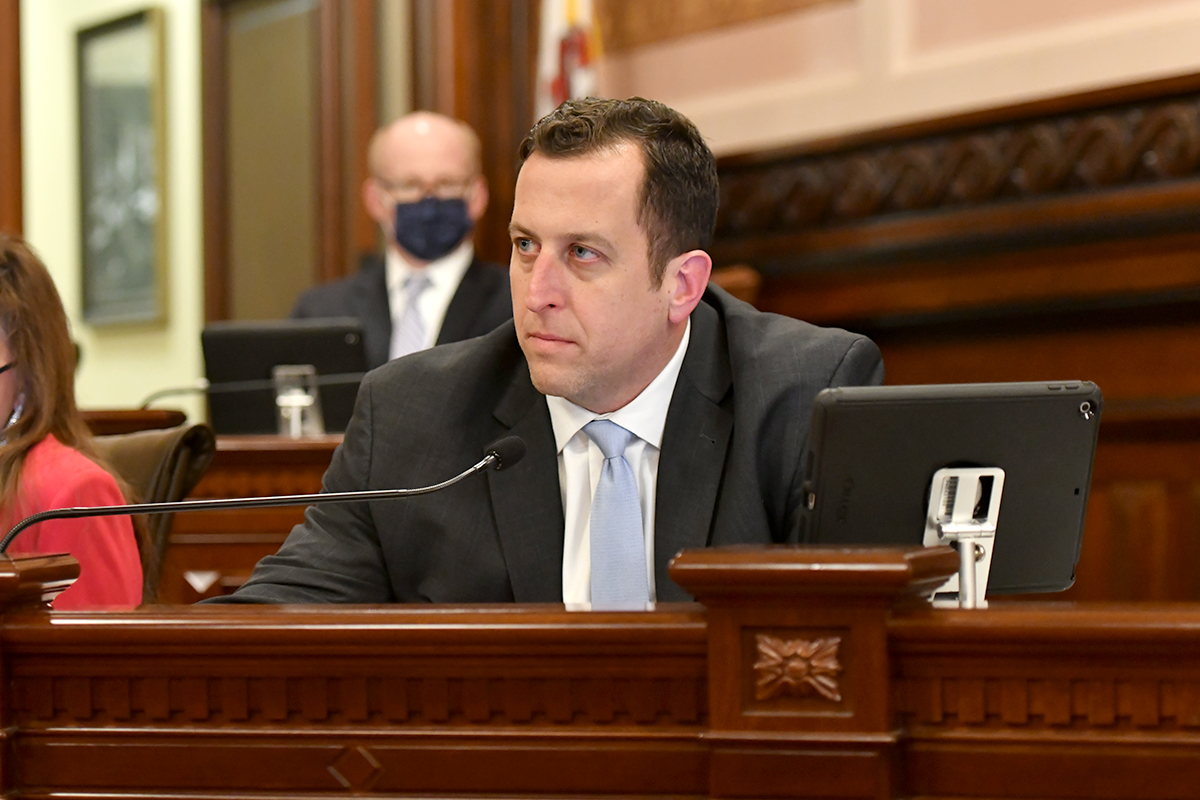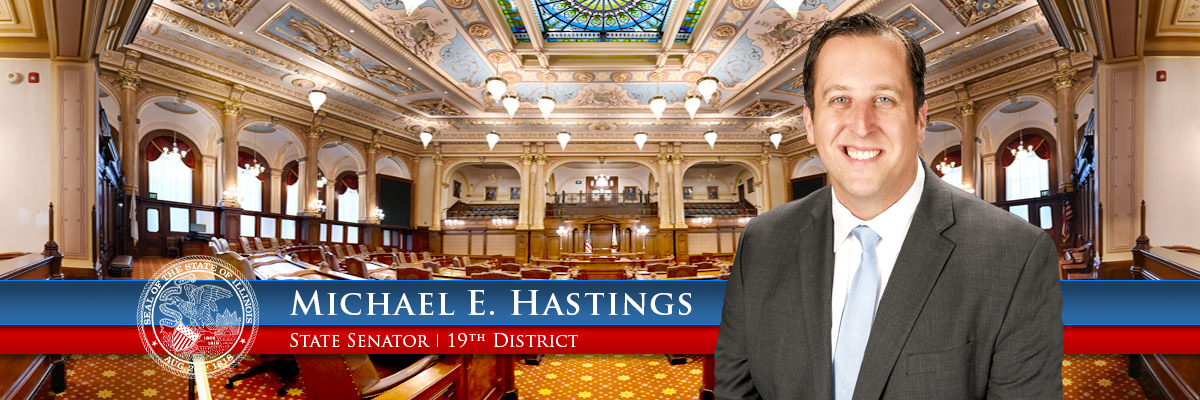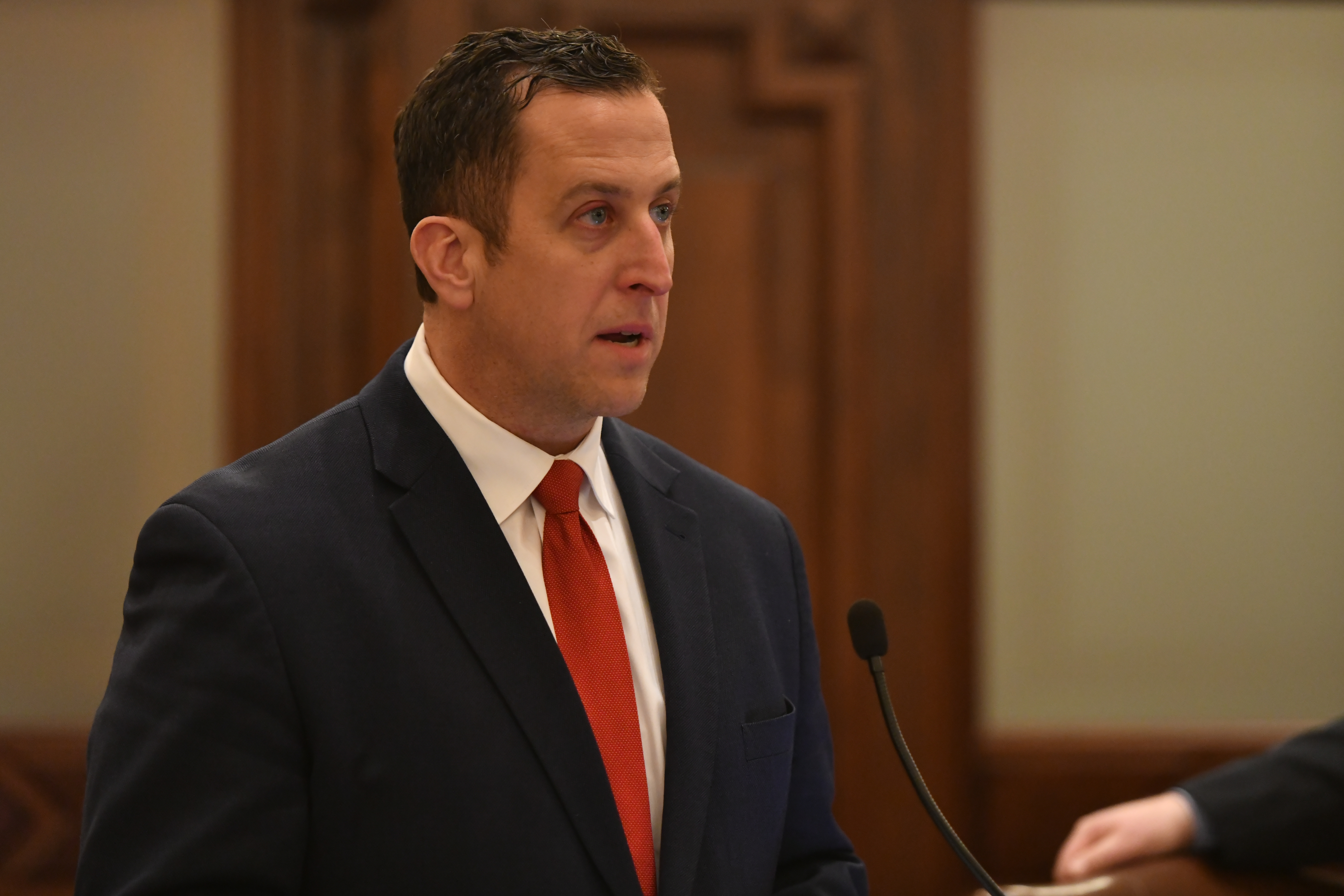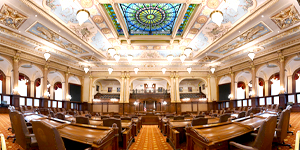- Details
- Category: Press Releases
 ORLAND HILLS — State Senator Michael E. Hastings (D-Frankfort) is partnering with Orland Hills Mayor Kyle R. Hastings and Moraine Valley Community College Trustee Bernadette Barrett to host a free community Touch-A-Truck event from 10 a.m. to 1 p.m. Saturday, June 18.
ORLAND HILLS — State Senator Michael E. Hastings (D-Frankfort) is partnering with Orland Hills Mayor Kyle R. Hastings and Moraine Valley Community College Trustee Bernadette Barrett to host a free community Touch-A-Truck event from 10 a.m. to 1 p.m. Saturday, June 18.
The event will allow children and their families the opportunity to touch, sit in and explore real vehicles from a number of different trades.
There will be a wide variety of vehicles such as a PACE Bus, vehicles from the Cook County Sheriff's Office, Orland Fire Protection District and more.
The family-friendly event is open to local residents.
Date: Saturday, June 18
Time: 10 a.m. to 1 p.m.
Location: Orland Hills Recreation Center (16553 S. Haven Ave., Orland Hills)
For more information, call Hastings ‘office at (815) 464-5431.
- Details
- Category: Press Releases
SPRINGFIELD – Illinois now has a new law on the books to address the growing need for mental health services for first responders, thanks to State Senator Michael E. Hastings.
Hastings (D-Frankfort) sponsored House Bill 1321, which creates the First Responder Behavioral Health Grant Program to provide grants to municipalities, law enforcement agencies, fire protection and school districts, hospitals and ambulance services. It was signed into law on Friday.
“Every day our brave officers put their lives on the line to keep our communities safe,” Hastings said. “First responders across Illinois have difficult jobs and often find themselves in high stress situations. This new program will help provide municipalities and law enforcement agencies among many others offer better services for officers looking for the tools to check in on their mental health.”
Hastings championed this initiative to ensure that first responders, including police, firefighters, emergency medical technicians, and public safety telecommunicators across Illinois have full access to supportive and responsive behavioral health services and treatment.
“Officer wellness is the proper foundation for all things law enforcement,” Chief Mitchell R. Davis, from the Hazel Crest Police Department said. “Being proactive about ensuring that the well-being of those that see the unthinkable for a living is intact ensures that they are able to carry out their responsibilities in a way that is best for them, their families, and those that they serve. Thanks to Senator Hastings for being a proactive force in ensuring that mental wellness is a top priority and that effective resources are equitably accessible to all law enforcement officers in the State of Illinois.”
During Hastings’ time in the Senate, he has supported various initiatives to fully fund law enforcement including this year’s budget which allocates funding for three state police cadet classes, the largest in state history, to hire and train 300 new troopers to address the rising need of law enforcement officers across the state, particularly in the Chicago metropolitan area.
House Bill 1321 passed the Senate and House with bipartisan support and goes into effect Jan. 1, 2023.
- Details
- Category: Press Releases

SPRINGFIELD -- A measure furthering State Senator Michael E. Hastings’ work to make Illinois a leader in preventing climate change is now law.
Hastings (D-Frankfort) championed Senate Bill 3866, which makes necessary improvements to the Department of Commerce and Economic Opportunity’s (DCEO) implementation and administration of the Climate and Equitable Jobs Act to help create a pipeline for Illinois residents to train and help Illinois residents pursue careers in clean energy construction and building trades.
“This new law sets up Illinois to tap into clean energy jobs,” Hastings said. “We are furthering the state’s mission to end climate change while embracing innovative technology to create good paying jobs in our own backyard.”
Senate Bill 3866 enable DCEO to award multi-year grants to Climate Works Hubs. It also requires hubs that receive funding to provide preapprentices with stipends no less than the minimum wage to ensure workers have the resources to support their families.
The Clean Jobs Workforce Network Program receives $21 million annually and consists of 13 geographically diverse hub sites that rely on community-based organizations to provide job training and a career pipeline for equity-focused areas.
This new program is projected to preserve nearly 28,000 direct and indirect jobs and $149 million in local economic impact.
“As businesses look to Illinois to set up shop, they can rest assure that our workers will be well trained and ready to hit the ground running,” Hastings said. “I am committed to looking for ways to modernize the state’s economy and securing good paying jobs for the people of the South Suburbs.”
Senate Bill 3866 passed the House and Senate with bipartisan support and goes into effect immediately.
- Details
- Category: Press Releases

SPRINGFIELD – Illinois put an end to surprise medical bills, thanks to the support of State Senator Michael E. Hastings.
Hastings (D-Frankfort) served as a cosponsor on House Bill 4703, which protects people covered under group and individual health plans from getting surprise medical bills after receiving most services from out-of-network providers. The legislation was signed into law on Thursday.
“When Illinois residents utilize medical services, they should not be surprised by additional expenses,” Hastings said. “Adding this level of transparency will help those undergoing medical procedures from receiving surprise bills when they should be focusing on their recovery.”
Illinois will now have the same protections as the federal No Surprises Act, which establishes new securities against surprise medical bills.
Prior to the federal No Surprises Act going into effect in January 2022, consumers who received care from out-of-network providers could be responsible for the difference between the charges the provider billed and the amount paid by their health plan, even when receiving care at an in-network facility.
“This is a step in the right direction,” Hastings said. “We need to continue to look for ways to promote transparency for those seeking health care treatments.”
House Bill 4703 passed the House and Senate with bipartisan support.
More Articles …
Page 27 of 88



